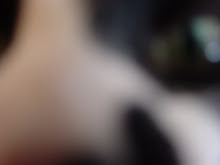"It has in fact been widely employed since the end of the eighteenth century. But the procedures of power that are at work in modern societies are much more numerous, diverse and rich. It would be wrong to say that the principle of visibility governs all technologies of power used since the nineteenth century" (148).
"The point, it seems to me, is that architecture begins at the end of the eighteenth century to become involved in problems of population, health and the urban question. . . . Then, late in the eighteenth century, new problems emerge: it becomes a question of using the disposition of space for economico-political ends" (148).
"What in fact was the Rousseauist dream that motivated many of the revolutionaries? It was the dream of a transparent society, visible and legible in each of its parts, the dream of there no longer existing any zones of darkness, zones established by the privileges of royal power or the prerogatives of some corporation, zones of disorder. It was the dream that each individual, whatever position he occupied, might be able to see the whole of society, that men's hearts should communicate, their vision be unobstructed by obstacles, and that opinion of all reign over each" (152).
"[Bentham] poses the problem of visibility, but thinks of a visibilty organised entirely around a dominating, overseeing gaze. He effects the project of a universal visibility which exists to serve a rigorous, meticulous power. Thus Bentham's obsession, the technical idea of the exercise of an 'all-seeing' power, is grafted on to the great Rousseauist theme which is in some sense the lyrical note of the Revolution" (152).
"A fear haunted the latter half of the eighteenth century: the fear of darkened spaces, of the pall of gloom which prevents the full visibility of things, men and truths. It sought to break up the patches of darkness that blocked the light, eliminate the shadowy areas of society, demolish the unlit chambers where arbitrary political acts, moarchical caprice, religious superstitions, tyrannical and priestly plots, epidemics and the illusions of ignorance were fomented" (153).
"If power is arranged as a machine working by a complex system of cogs and gears, where it's the place of a person which is determining, not his nature, no reliance can be placed on a single individual. If the machine were such that someone could stand outside it and assume sole responsibility for managing it, power would be identified with that one man and we would be back with a monarchical type of power" (158).
- How do you behead a machine? With one sovereign leader, at least an uprising is possible, but if we are all cogs in a machine, what power do we have, individually, to effect change within that system? The answer lies in rhetroric, I bet.
"And failed to see that these media would necessarily be under the command of economico-political interests. They failed to perceive the material and economic components of opinion. They believed opinion would be inherently just, that it would spread of its own accord, that it would be a sort of democratic surveillance. Basically it was journalism, that capital invention of the ninteenth century, which made evident all the utopian character of this politics of the gaze" (162).

No comments:
Post a Comment